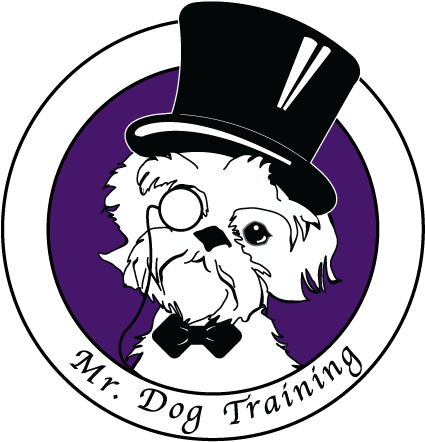5 Dog Training Phrases That Sound Helpful (But Totally Aren’t) – Part 2
Last month, we took a look at some of the most common (and misleading) phrases in the dog world.
Turns out, there are a lot of them—so many that we needed a whole second post.
Ready for more?
Buckle up buttercup, this round might hit even closer to home.
6. “Let them sort it out.”
This one usually shows up about 10 seconds before somebody gets bit. It sounds hands-off and cool and dog-savvy, but most of the time, it’s just… lazy.
Unless you’re a professional who can fluently read dog body language (and even then, it’s risky), stepping back and hoping for the best is a fast track to physical or emotional injury—sometimes for both dogs involved. Your adolescent golden might not need to “learn a lesson” from the grumpy senior dog at the park. Your job is to prevent conflict, not cross your fingers and film it for TikTok.
7. “All dogs can be fixed.”
Here’s the thing: dogs aren’t broken. But behavior isn’t a leaky faucet you can just tighten a bolt on. It’s fluid. It’s complex. It changes with context, history, environment, and how much sleep anyone got last night (you and the dog).
We don’t talk about “fixing” people with behavioral struggles—we talk about support, therapy, adaptation, healing. Dogs deserve the same lens. So if your dog has behavior you’d like to change, don’t aim to “fix” them. Aim to understand them. Then go from there.
8. “It’ll only take a couple of sessions.”
Dog training is not like getting your oil changed. It’s not a one-and-done. If it were, I’d be out of a job (and frankly, I’d be thrilled if it were that easy).
You’re not training for the moment—you’re training for the long haul. Think of it like fitness. You don’t go to the gym twice and call yourself marathon-ready. Dogs need practice, consistency, and a human who understands that progress doesn’t happen on a pre-set schedule. There’s no training montage here, just real life. Keep showing up. It’s worth it.
9. “They just need to get used to it.”
Exposure therapy isn’t just a matter of chucking someone into the deep end and hoping they swim. That’s not exposure. That’s flooding. And it’s more likely to traumatize your dog than help them.
Yes, dogs can learn to cope with things that once scared them. But only if it’s gradual, thoughtful, and on their terms. If your dog “suddenly stops reacting,” don’t break out the champagne just yet—they might just be shutting down. (Which, for the record, is not the same thing as calm.) If you want them to truly feel better, you’ve got to go slow. Slower than that. No, slower than that.
10. “My dog needs training.”
Sure they do. But you know who really needs the training?
(Hi. It’s you. It’s me. It’s all of us.)
Dogs are excellent learners. But the quality of their learning is only as good as the quality of the teaching. If your dog isn’t “getting it,” that’s not a reflection on them—it’s a cue for you to adjust. The way we communicate, set expectations, reinforce behaviors, and handle setbacks all directly affect how our dogs respond.
So yes, train your dog. But start with the human end of the leash.
That’s where the magic really happens.
That’s what I’m here for.
Final Thought: Retire the Phrase, Not the Dog
Language matters. How we talk about dogs reflects how we treat them. So the next time you hear one of these catchy-but-clunky phrases, give it a second thought. Your dog—and the dogs around you—will thank you.
Sara Sokol is owner of Mr. Dog Training in Brunswick Maine; A positive reinforcement dog training facility, offering both virtual and in person classes, that has been voted best training in Maine.
